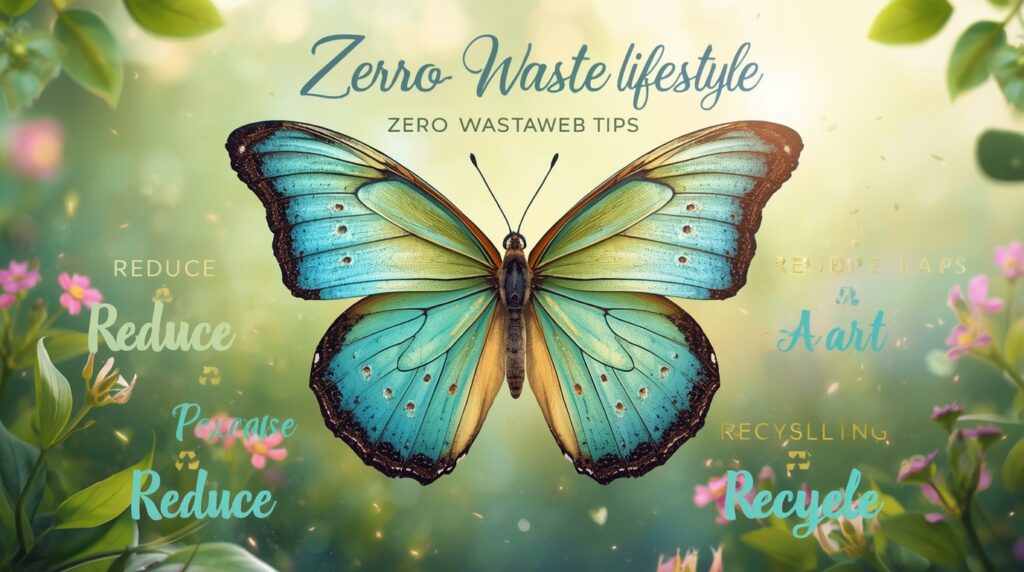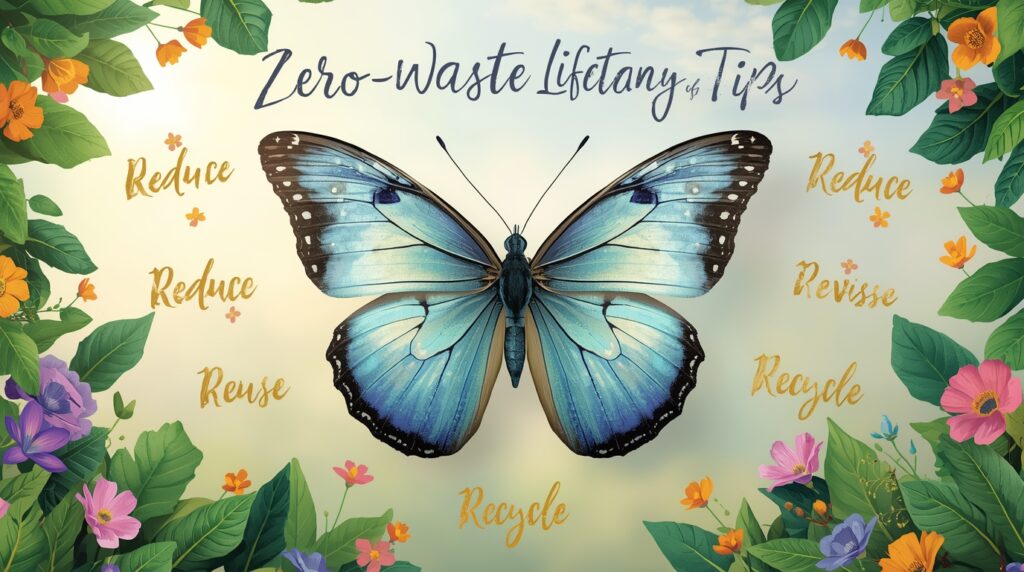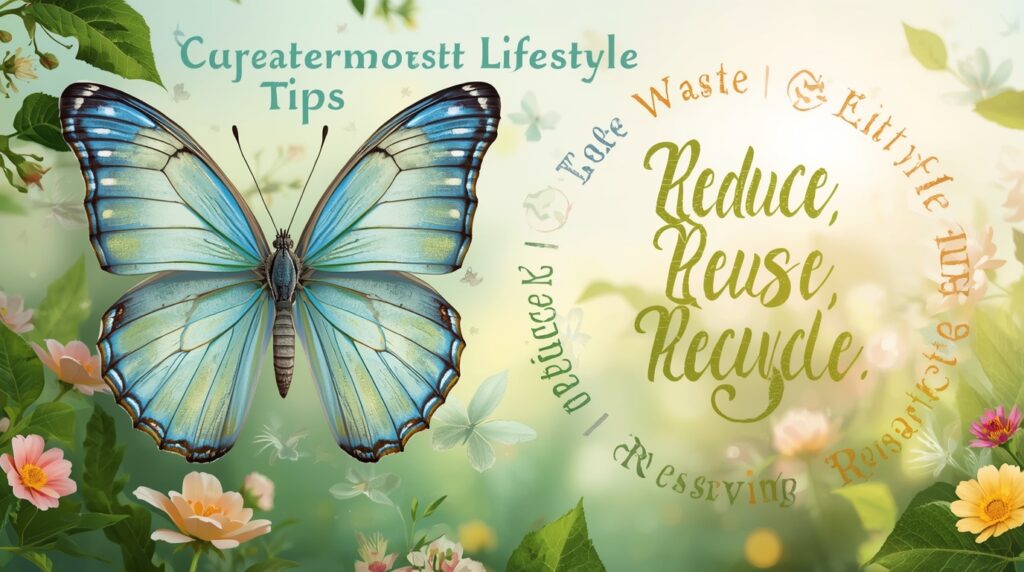Living a zero-waste lifestyle has been very popular in the last several years, especially as more people learn about how consumption hurts the earth. With climate change, pollution, and overconsumption still being big problems around the world in 2025, it’s more crucial than ever to start living in a way that is good for the environment. Living a zero-waste lifestyle doesn’t mean never making rubbish. It involves making decisions that are good for the environment and cutting down on trash as much as possible. This guide will help you make tiny but important changes to your life that will help you live a more sustainable life.

What Does Zero-Waste Mean?
Living a zero-waste life means planning your life in a way that makes landfills and incinerators less necessary. It is based on the 5Rs:
- Refuse anything you don’t need.
- Cut back on what you need.
- Reuse what you can.
- Recycle what you cannot refuse, reduce, or reuse.
- Rot (compost) the rest. By adopting these principles, you can minimize your carbon footprint, save money, and contribute to a cleaner, healthier Earth.
Switch to Reusable Everyday Items
Single-use plastics are among the greatest causes of waste pollution. Replace disposable things with reusables:
- Carry a stainless steel water bottle instead of buying bottled water.
- Use reusable coffee cups, cutlery, and straws.
- Swap plastic grocery bags for cloth tote bags.
- Invest in beeswax wraps or silicone lids instead of cling film. This simple swap drastically minimizes plastic waste in your everyday routine.
Buy in Bulk
Packaging is one of the major causes to waste. Purchasing dry items like rice, pasta, lentils, nuts, or spices from bulk stores allows you to bring your own containers and minimize unnecessary packing. In 2025, several supermarkets are developing bulk departments, making it easier for shoppers to reduce waste.
Embrace Composting
Food scraps are routinely dumped into the trash, where they create hazardous methane emissions in landfills. By composting, you not only minimize waste but also create nutrient-rich soil for gardening. Even if you live in an apartment, there are tiny indoor compost containers and communal composting programs available.
Rethink Your Wardrobe
The fashion sector is a big polluter, producing tons of textile waste every year. Instead of chasing rapid fashion trends, try:
- Buying second-hand clothes from thrift stores. * Organizing clothing swaps with friends.
- Investing in high-quality, timeless pieces that last longer.
- Repairing or upcycling old clothes instead of dumping them. Sustainable fashion is more trendy than ever in 2025, and eco-friendly firms are gaining popularity.

5. Practice Mindful Consumption
Zero-waste is not just about tangible items—it’s also about mindset. Before purchasing a purchase, ask yourself:
- Do I really need this?
- Can I borrow or rent instead? * Will this product last long? This behavior not only cuts down waste but also saves you money in the long term.
DIY Household Products
Many cleaning and personal care goods come in plastic bottles packed with chemicals. You may produce eco-friendly alternatives at home using simple items like vinegar, baking soda, and essential oils. For example:
- Make your own all-purpose cleaner with vinegar and lemon peels. * Create homemade toothpaste or deodorant with natural ingredients. * Use bar soaps and shampoo bars instead of bottled versions.
7. Opt for Digital Over Paper
Paper waste continues to be a concern, but technology offers alternatives. Reduce your paper footprint by:
- Switching to digital receipts.
- Reading e-books instead of physical versions. * Managing bills and subscriptions online. This move is practical, convenient, and eco-friendly.
Choose Sustainable Transportation
Transportation contributes considerably to pollution. While going zero-waste is frequently connected with physical products, it also involves lowering carbon emissions:
- Walk or cycle whenever possible. * Use public transportation. * Carpool with friends or colleagues. * If you own a car, consider switching to a electric or hybrid vehicle.
Shopping locally minimizes packaging waste and transportation emissions. Farmers’ markets, local artists, and small companies generally adopt eco-friendly practices. Supporting them not only helps the environment but also improves your community.
Educate and Inspire Others
A zero-waste lifestyle thrives when shared. Teach your family, friends, or colleagues about sustainable behaviors. Social media platforms in 2025 are full with eco-influencers offering zero-waste hacks—join the conversation and create awareness.
Benefits of a Zero-Waste Lifestyle
- Environmental Impact: Less plastic pollution and reduced carbon emissions. * Financial Savings: Buying less and reusing more saves money. * Healthier Living: Fewer chemicals in your home and diet. * Community Growth: Supporting local businesses and encouraging collective sustainability.

Final Thoughts
Transitioning to a zero-waste lifestyle doesn’t happen overnight. It’s a gradual process of making little, conscious adjustments that add up to enormous results. In 2025, embracing these zero-waste tips is not simply a personal choice—it’s a responsibility we all share for the future of our world.



